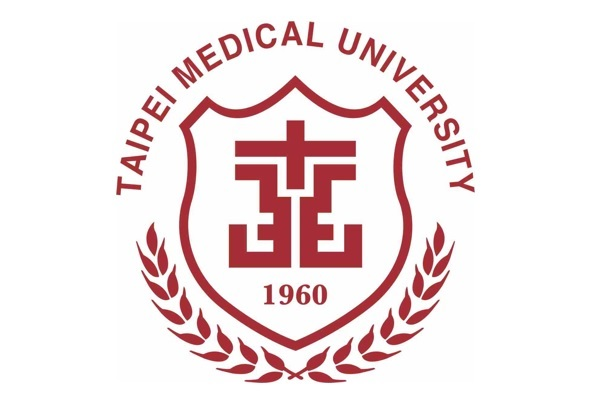3C's Laberatory
Research Field
Dr. Che-Chang Chang is an expert in cancer biology and translational medicine.
Dr. Che-Chang Chang's Lab is focus on the cancer research and therapy. We use genomic and proteomics strategies to identify the cancer biomarkers and potential therapeutic targets. In addition, we perform the cellular functional assays, molecular experiments and PDOX mouse model for validation. Our goal is use translational medicine to bridge the bedside clinical question and bench basic research.
A. The roles of sentrin-specific proteases in breast cancer tumorigenesis
To explore the functions of SUMO-specific proteases, we focus on two members of SENP family, SENP1 and SENP2.
(1) The Pin1 prolyl isomerase regulates numerous oncogenic molecules. We showed that Pin1 sumoylation inhib-its its protein activity and oncogenic function. Our results identify a critical role for SENP1-mediated de-SUMOylation in promoting Pin1 function during tumorigenesis. Cancer Research 2013, 73:3951-3962.
(2) The Smad4 plays an important role in TGF- signaling pathway. We demonstrated that SENP2 interacted with and deSUMOylated Smad4 via its segment containing residues 363-400, and relieved SUMOylation-mediated TGF-β transcriptional repression. Our findings suggested that SENP2 promotes cell migration in triple-negative breast cancer cells via interaction and deSUMOylation of Smad4. Our studies not only determine how SENP2 regulates the substrate for deSUMOylation but also elucidate a role of SENP2 in TGF-β signal-ing-induced cell migration. Scientific Reports 2018, 8(1):9786.
B. Biomarker discovery
To identify the disease biomarker, we focus on two poor outcome cancer, gastric cancer (GC) and glioblasto-ma muliforme (GBM), diabetic nephropathy (DN) and luminal breast cancer (BC)
(1) The use of blood plasma biomarkers in GC management is limited due to a lack of reliable biomarkers. We demonstrated that SHBG levels to be a potential candidate for an early diagnostic biomarker that may be ap-plied in GC management. Cancer Medicine 2018, 7(1):64-74.
(2) GBM is a highly malignant type of brain tumor found in humans. In summary, our results demonstrate that SAA1 in combination with integrin V3 can serve as an indicator of high glioblastoma risk. We also identi-fied the cellular mechanisms of SAA1 contributing to GBM progression, which can serve as the basis for fu-ture GBM therapy. Mol. Oncol. 2018, 12(5):756-771.
(3) Among multiple causes, diabetic nephropathy (DN) is the major underlying renal disease that leads to end-stage renal disease (ESRD), and early diagnosis can effectively prevent or delay the progression to ESRD. Se-rum Con A-bound ApoA4 levels were higher in the DM group than in HCs, and further increased in the DN group. This evidence supports serum ConA-bound ApoA4 as a circulating marker for predicting the progres-sion of renal impairment in DM patients. Eur J Clin Invest. 2018, e12937.
(4) The high expression of O-GlcNAc or PKM2 was a significant independent marker for poor 10-year DFS us-ing IHC analysis. The PKM2 or O-GlcNAc status was a significant predictor of DFS, with the combination of PKM2–O-GlcNAc status and T stage greatly enhancing the predictive outcome potential. In summary, O-GlcNAc, PKM2, and T stage serve as good prognostic discriminators in HR+/HER2− luminal BC. Diagnostics 2021, 11, 1460.
C. Cancer reaserch and therapy in ATRT
ATRT are among the most malignant brain tumors in early childhood and remain incurable.
(1) We performed DGE and GSEA analysis on matched primary and recurrent PDX samples from an infant with ATRT to find a proteasome component as drug target. BTZ inhibited tumor growth and prolonged survival in Myc-ATRT ortho-topic xenograft mice. Our findings suggest that BTZ may be a promising targeted therapy for Myc-ATRTs. We achieved using BTZ as an add-on therapy to standard and HDC for ATRTs in children for a clinical Phase II in-vestigator initiated trial (ECRC補助IIT案-1091-18). Cancers 2020, 12:752.
(2) Ribonucleotide reductase regulatory subunit M2 (RRM2) is the building subunit of the ribonucleotide reductase enzyme that is important for DNA synthesis and repair. The vital roles of RRM2 in controlling many cancers' progression have been reported. We found that RRM2 was highly expressed in multiple independent ATRT clinical cohorts. Besides, the expression level of RRM2 was significantly associated with poor survival. RRM2 depletion by shRNA strategy or RRM2 inhibitor treatment significantly inhibited cell viability, colony formation and migration. Furthermore, inhibition of RRM2 expression activated DNA damage and induced cell apoptosis. Together, our data suggest that RRM2 is associated with the progression of ATRT, and may be a potential therapeutic target for this tumor. J Exp Clin Cancer Res 2023, 42:346.
2005-2010 Academia Sinica Postdoctoral fellowship, Taiwan
2006-2010 Research Competition of Travel Award for International Conference, Institute of Biomedical Sciences, Academia Sinica, Taiwan
2005 Thesis Research Award of Dr. Jung-Yaw Lin Foundation
2004 PhD. Student Thesis Research Award of Graduate Institute of Life Sciences, NDMC
1997 Honor Award, Phi Tau Phi scholastic honor society of Fu-Jen Catholic University
1995-1997 Father Franz Huber Scholarship of Biology, Fu-Jen Catholic University
1991-1995 Alumnus Scholarship of Biology, Fu-Jen Catholic University
2005-2012 Postdoc fellow, Institute of Biomedical Sciences, Academia Sinica, Taiwan
2000-2005 Ph.D. Life Sciences, National Defense Medical Center, Taiwan
1995-1997 M.S. Biology, Fu Jen Catholic University, Taiwan
1991-1995 B.S. Biology, Fu Jen Catholic University, Taiwan
